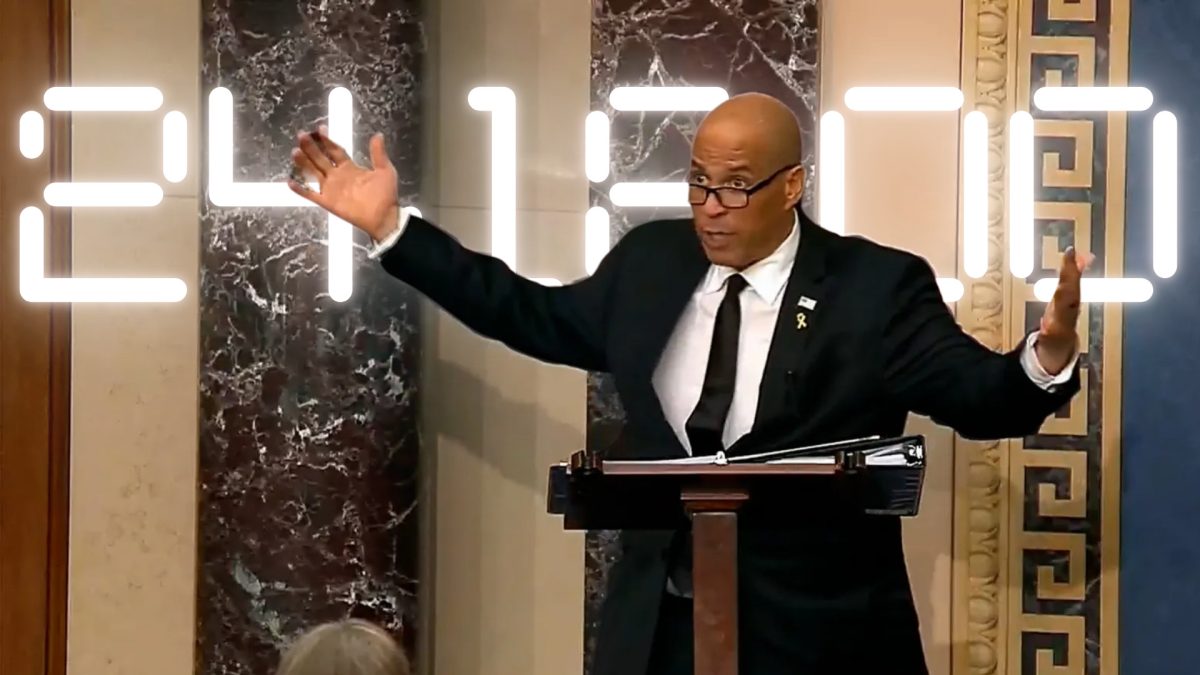Senator Strom Thurmond set the record for the longest filibuster in United States Senate history on August 28, 1957, when he spoke for 24 hours and 18 minutes straight. The purpose of his marathon speech was to oppose the Civil Rights Act of 1957, a bill aimed at increasing African Americans’ access to voting rights. He was a Southern Democrat from South Carolina and a passionate segregationist who used the filibuster, a tactic that allows a senator to delay or block legislative action by extending the debate, as a last-ditch effort to prevent the bill’s passage. Thurmond’s filibuster included reading from historical documents, the Declaration of Independence, state election laws and even recipes, simply to keep speaking and delay the vote. He prepared weeks in advance, reportedly taking steam baths to dehydrate himself so he could avoid bathroom breaks. Despite his efforts, the bill eventually did pass, just in a much weaker form than originally intended.
The significance of the filibuster in congressional history lies in its power to give the minority party or a single senator significant influence over legislation. This act of devotion grabs the country’s attention and turns the focus to a problem that might not have been so concerning to the rest of Congress, but inspires a smaller group or person. While originally designed as a way to ensure extended debate and protect minority opinions in the Senate, the filibuster has historically been used to block civil rights and social reform legislation. Thurmond’s record-setting speech is one of the most notorious examples of this tactic being used to resist progress, and it remains a powerful symbol in debates over whether the filibuster should be reformed or abolished entirely.
On March 31, 2025, Senator Cory Booker of New Jersey delivered a historic 25-hour and 5-minute speech on the Senate floor, surpassing the previous record held by Thurmond. This unprecedented act was a protest against President Donald Trump’s policies and the operations of Elon Musk’s Department of Government Efficiency (DOGE), which Booker criticized for undermining democratic institutions and public welfare. Booker’s marathon speech was inspired by civil rights leader John Lewis, emphasizing the moral imperative to resist actions that threaten the nation’s democratic foundations. During his address, he highlighted concerns regarding executive overreach, mass government layoffs and the erosion of civil liberties. His endurance was encouraged by support from fellow Democrats, who took turns asking questions to allow him brief moments of respite and extending his time on the floor.
The filibuster has historically been a tool for both obstruction and protest. While it can be effective in drawing attention to issues and rallying public support, its impact on legislative outcomes is usually limited. Booker’s record-breaking speech served as a powerful symbol of resistance, capturing national attention and reigniting discussions on the state of American democracy. This event presents itself in the current political climate, characterized by heightened polarization and a growing sense of urgency among progressives to confront perceived threats to democratic norms. Booker’s action not only challenged a longstanding record but also highlighted the evolving strategies employed by lawmakers to advocate for their constituents and uphold constitutional principles. The record being broken by an African American man (also New Jersey’s first African American Senator) is an especially proud moment for this country, considering the previous record filibuster was in favor of segregation. This accomplishment is a testimony to the desire for an America where equality and human rights are respected. The resistance Booker and Democrats displayed that day is a light of hope to Americans who are fearful in light of recent events such as school defunding, deportations, firing of government employees and ending of diversity, equity and inclusion (DEI) programs.
As a Democratic college student, Booker’s 25-hour speech meant more to me than just a record-breaking moment. It felt like someone finally stood up and said, “Enough is enough,” and didn’t sit down until people heard him. Finding out he spoke for over a day straight was not only impressive, it was deeply moving. He didn’t do it for fame or attention; he did it because he believed that what’s happening in our country right now threatens the values we care about: justice, equality and democracy. For students like me, this was a wake-up call and a call to action. Too often, we’re told we don’t know enough about politics, or that our voices don’t matter, but Booker’s speech showed that passion, persistence and standing on principle can still mean something in Washington D.C. He gave everything, his time, his energy, even his body, to make a statement about the direction this country is heading in under policies that feel more like authoritarian control than efficient governance.
This speech inspires us to get involved, organize on campus, vote in every election, speak out and support leaders who truly represent our values. It reminds us that change doesn’t come from comfort, but from courage. A quote I think of almost every week is “well-behaved women seldom make history” by Laurel Thatcher Ulrich in 1976. This quote reminds me every day, just as Booker did, that through discomfort, change is born. Today in 2025, with democracy feeling fragile and so much division across the nation, Booker’s stand reminds our generation that we have to be part of the fight, because if we’re not, the future we inherit won’t be one we recognize or want to live in. Our future is in our hands, and the torch is being passed to us. Booker reminded Americans that our government is here to serve us, not the other way around. We can not let lawlessness continue to corrupt our nation’s values.
Loresa Zeqiraj, FCRH ’28, is an international studies and English double major from Yorktown Heights, New York.










































































































































































































